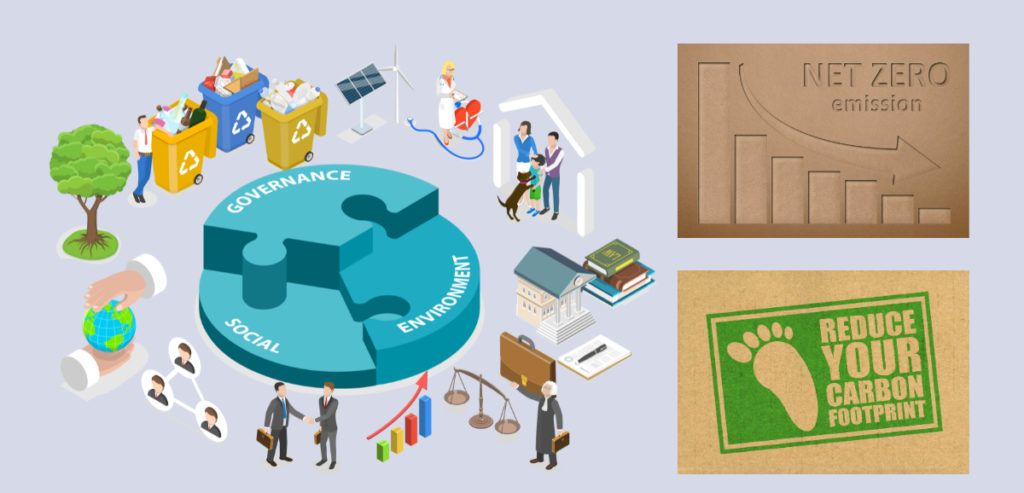
Are you someone looking into a remote job opportunity? Do you want to adjust your current working environment from on-site to work-from-home?
Work from home benefits are extremely attractive and should not be taken lightly. Believe me, I’ve been fortunate to have received those WFH benefits for many years throughout my working life and continue to do so.
This article will detail the multiple benefits of working from home and why I feel it is worth pursuing a remote job at your current company, or at another one, if you ever have the opportunity.
Key Takeaways
- Eliminating commutes improves financial and time management.
- A personalized workspace fosters well-being and productivity.
- Advanced technology facilitates collaboration and overcomes the challenges of remote work communication.
- Physical and mental health is improved significantly.
- Flexibility of schedule is paramount to work-life balance.
- It’s a win-win scenario for both employee and employer.
Working from home offers an array of benefits that can lead to a more satisfying, efficient, and productive working life and a more stable home life. You also can implement your own work from home office upgrades whenever your little heart desires.
From the economic to physical benefits to having more control over your working environment, working from home benefits are certainly numerous and will be detailed below.
Defining Work From Home
Work from home, or WFH, is a flexible arrangement that allows a worker to perform job duties from a location outside of the traditional office environment, typically from home.
It hinges on the concept that effective work doesn’t need to be tied to a specific place when technology enables connectivity virtually anywhere.
If you are fortunate to be able to work from home, you may not have to send nearly as many how to call out of work text messages to your boss.
Evolution of Remote Work
Once a rare perk, remote work has evolved significantly with advancements in technology. I’ve seen it gain popularity as digital platforms make collaboration possible across cities, countries, and continents.
To be honest, I feel that the pandemic proved to most employers that their companies could run as usual when the worker wasn’t sitting in a traditional office. Obviously this only works with certain jobs.
A hotel worker cannot physically work remotely but a software developer or database administrator can. An employee who works in Receiving or on the Manufacturing floor cannot work remotely but an inside salesperson can. That is, as long as the company allows them to do so.
It began as an exception, often for freelancers, but has since become a widespread option for many industries following the proof of concept that essential tasks and meetings can be effectively carried out remotely.
Current Trends
Currently, remote work has become part of the new normal. From startups to global corporations, companies have embraced flexibilities such as asynchronous communication and cloud-based workflows that support working from home.
Just check LinkedIn.com and the open job opportunities when it comes to Systems Analysis, Database Administration, or Software Development. From my experience, it appears that 90% of the open positions in those disciplines are fully remote or a hybrid working environment where the employee can work remote on a part-time basis.
The advantages to working at home include eliminating commute time, which boosts productivity and provides a better work-life balance. Empirical evidence supports these claims, indicating a rise in employee satisfaction when remote work options are available.
7 Undeniable Work from Home Benefits

1. Economic Advantages – One of the Most Popular Benefits of Remote Working
Cost Savings for Employees
In this day and age being able to save money as a remote worker is one of the perks of working from home. By eliminating the daily commute, the savings on transportation costs are significant especially if you live far from the office as I do.
When I worked in the office, my commute lasted an hour each way. So when I didn’t have to make the work trek each day, the cost savings on both gasoline and wear and tear on my car were considerable.
- Commuting: I ended up saving an average of $50 per week on fuel. Also, less miles on my car meant less trips to the car repair shop. If you took public transport you would save on the bus/subway/train.
- Coffee/Lunch: Each morning I would stop for a coffee and bagel on my way into work. That added up to roughly $25 per week. If you tend to go out for lunch (which I did not do regularly) you would save on lunch costs which could add up to $50/week.
- Work Attire: Also, since I don’t have to shop for work attire any longer that is another cost benefit to remote working. These savings add up over time, leaving more money in my bank account.
Another one of the economic advantages of working from home for me was that I lived in a bordering state from where my company was located. It just so happened that the state I lived in didn’t have a state income tax but the bordering state where my company was located did have an income tax.
Since I was working remotely full-time I would get a refund of thousands of dollars at tax time because the state taxes (based on the company location) were being taken out of my check automatically. This was one of the most lucrative benefits to working at home for me when it came to my finances.
Economic advantages of working from home aren’t only for the employees but also for the employers.
Cost Benefits for Employers
Employers make out pretty well when it comes to remote work. First off, they can often reduce office space and related overhead costs. Without a need for large physical spaces, money is saved on rent, utilities, and office supplies. Here’s what an employer can save on by having a remote workforce:
- Office Space: Less office space leads to less rent.
- Utilities: Lowered electricity and water usage has a noticeable effect on monthly expenses.
- Supplies: A reduction in supplies like stationery, printer paper, printers and maintenance, toiletries, and break room goods like coffee, tea, and hot chocolate leads to significant cost cuts.
Beyond the numbers, employers also witness a surge in productivity levels, which translates to real economic value. On a personal level, by eliminating my commute, I’m often more willing to start work earlier and work longer since I don’t have to beat the traffic to and from work.
I know for a fact that at a senior staff level at my company they were pleasantly surprised with the performance of the company when most employees worked from home during the pandemic.
The company revenue didn’t skip a beat even though if you happened to drop into the office during that time (with your mask on) it was like a ghost town.
Indeed, the economic benefits of remote work suggest there’s much to gain from incorporating such practices. I’ve seen firsthand that what’s good for employees like me often turns out to be great for my employer as well.
2. Health and Well-Being – One of the Key Advantages of Working from Home

Working from home has afforded me a unique opportunity to enhance my health and well-being on various fronts.
Mental Health Benefits
When I transitioned to working from home, I experienced a significant decrease in stress levels due to the elimination of my daily commutes. The flexibility in my schedule means I can incorporate short breaks that improve my focus and reduce burnout.
I can get up and take a short walk when I feel I need to or even take a 15-minute power nap. It may sound like a small benefit but has helped me tremendously when it comes to my mental health.
Physical Health Improvements
One of the pros of working from home that positively impacts my physical health is the control over my workspace. I can invest in an ergonomic setup that leads to less back pain and improved posture. I also have so much more office wall space to decorate it in the style that I prefer.
Having easy access to a kitchen allows me to prepare healthier meals, contributing to better overall nutrition. Instead of going out for lunch as I did on occasion at work, I don’t settle for a meal that isn’t nutritious. I can even take advantage of healthy leftovers from the night before just by walking down the hall.
Furthermore, I found that extra time once spent on commuting can be used for exercise. I’ve developed a home gym over the years and being able to perform a rigorous workout during the day without having to drive to a gym is one of the greatest working from home benefits for me.
3. Productivity Enhancements
When it comes to the many benefits of working from home, it’s clear that productivity is a multi-faceted beast. I’ve found that it hinges on individual work habits and company-wide practices.
Boosting Individual Performance
I’ve noticed that working from home can really enhance my focus and efficiency. Without the usual office interruptions such as someone just dropping by my cubicle to talk, I’m able to dive deep into tasks. Also, having healthy office snack ideas available at all times fuels me throughout the workday.
A study on the productivity effects of geographic flexibility found similar results, indicating that a lack of traditional office distractions can lead to heightened individual productivity. Here’s a quick look at the personal productivity boosts I’ve noticed:
- Reduced Commute: Those precious hours once spent in transit are now invested in my work or well-being.
- Flexible Schedule: I can work when I feel most alert and creative, whether that’s early morning or late at night.
- Tailored Environment: My home office is set up specifically to match my work habits. It is a separate space designated only for me, which makes it easier to get into the work groove each day. I can also incorporate many of the home office lighting ideas that are available today. The proper lighting not only can reduce eye strain but also enhance mood and productivity.
- Home Office Design Ideas: The choices you can make with a home office are numerous. I opted for an industrial office decor but the options are endless to furnish your own personal workspace.
Impact on Company Output
The impact of work from home on company productivity is a hot topic. While the debate continues, my take, supported by data from a paper entitled Why working from home will stick, suggests that when employees like me can manage their work environment and schedules, overall company output can see a positive boost. This is thanks to:
- Better Resource Allocation: Companies can save on office space and reinvest in key areas.
- Global Talent Pool: When location isn’t a barrier, my employer can pull in the best people from anywhere. This is one of the most desirous aspects of remote work for an employer.
- Fewer Sick Days: I tend to take fewer sick days now that I’m not exposed to office germs and I have more healthful sleep patterns which keeps my productivity more consistent. Where in the past I would try to come up with good excuses to work from home, now I can simply walk into my home office without even considering coming up with a good excuse to miss work on short notice or calling in sick.
I’ve personally seen both my performance and my company’s output benefit from the shift to remote work. In fact, when all of us employees were forced to work from home during the pandemic, even though it was a sad and trying situation for the country, each employee rallied and kept the company moving forward.
4. Technological Integration – A Major Reason Why WFH Works

I’ve found that the key to successfully working from home hinges on two pivotal elements: the tools we use for remote collaboration and the security measures that protect our digital workspace.
These pieces of the work-from-home puzzle dramatically affect not only the ease with which I work but also ensure the effectiveness of my output.
Tools for Remote Collaboration
My daily routine leans heavily on various remote collaboration tools. For instance, video conferencing platforms like Microsoft Teams, GoToMeeting, or Zoom allow me to virtually meet face-to-face with my team and others in the company.
I often use cloud-based services like Google Drive or Dropbox for storing and sharing documents, ensuring that everyone has access to the latest versions.
Security Considerations
When discussing the benefits of remote working, one cannot overlook the importance of robust security measures. Since I’m handling sensitive data outside the traditional office, my company ensures that all remote employees use strong passwords and multi-factor authentication.
Moreover my company provides a secure VPN for accessing the company network and safeguarding against potential threats.
Security Protocols:
- VPN
- Anti-malware tools to protect against viruses and phishing attacks.
By meticulously selecting and utilizing these technologies, I’ve been able to not only maintain but enhance my work productivity and safeguard my data effectively.
5. Environmental Impact – One of the Perks of Working from Home

When discussing how I, along with many others, contribute to a healthier planet, the benefits of working from home can’t be overlooked. If you care about the environment, working from home can help.
Reducing Carbon Footprint
By swapping my daily commute for a daily stroll to my home office, I significantly cut down on CO2 emissions. Most days, I’m not driving or using public transportation, which translates to a reduction in the carbon footprint associated with travel. This is an added benefits of remote working.
It’s an immediate way to combat air pollution and contribute to cleaner air. Studies suggest that when masses of individuals work from home, the cumulative effect on traffic congestion and pollution can be substantial, tabling not only an environmental benefit but also a public health one.
Sustainable Work Practices
My workspace at home allows me to adopt sustainable practices that align with eco-friendly goals. For instance, I control energy usage more efficiently; because I’m only heating or cooling the space I’m using.
I take pride in being able to reduce waste by using electronic communication and digital files to minimize paper use—a stark contrast to the paper-heavy practices often seen in traditional office environments. Additionally, I’m more likely to use environmentally responsible products, like reusable coffee mugs or water bottles, which cuts down on plastic waste.
Integrating sustainability into the core of how I work not only benefits the environment but it often results in healthier, more cost-effective living for me as well.
6. Social Dynamics and Community Engagement

In my experience, the way social dynamics play out in a work-from-home setup can significantly affect both the workers and the community. My company has greatly lessened their formerly hard stance on working from home ever since the pandemic showed that remote work, for lack of a better word, works!
Let’s discuss how fostering a robust remote work culture and actively engaging with the community can have positive impacts for employers.
Building a Remote Work Culture
As I’ve learned, creating a strong remote work culture is essential for any company’s success. For me, communication is key. It’s imperative to have frequent interactions to ensure that the team feels connected regardless of physical distance.
Establishing regular video calls helps us maintain a sense of camaraderie, and using collaborative tools keeps us in sync. After working remotely for years the major benefits I’ve noticed include:
- Improved trust and independence, as team members manage their tasks with less direct supervision.
- Enhanced job satisfaction, stemming from the flexibility and autonomy that remote working offers.
Community Engagement
Engaging with a wider community through professional networks and local initiatives is another aspect of social dynamics. This involvement brings benefits like:
- Fresh perspectives, because interacting with diverse groups at various companies can spark new ideas for tackling work challenges.
- Support structures, providing a safety net of industry peers and local contacts who can offer support or advice when needed.
By focusing on these areas, you can cultivate a work from home environment, as I have, that supports both individual growth and community bonds—all while reaping the benefits for my own company.
7. Employer Benefits
In today’s work climate, embracing WFH policies include a wealth of benefits \not only for the employee but also for the employer. Apart from the cost benefits mentioned previously, one of the most crucial perks I’ve noticed is the ability of a company to retain stellar employees.
Life happens—maybe they need to move for family reasons or simply desire a change of scenery. A number of years ago I move three hours from the company offices due to a need to care for elderly in-laws. I was able to retain my job by working remotely and, at the same time, fulfill my family obligations.
In my mind, this was the perfect definition of work-life balance. Offering WFH options by an employer means they don’t lose top talent just because your zip code changes.
Another upside is literally broadening the horizons of hiring. An employer is longer confined to candidates within commuting distance of the office. Instead, the recruitment pool becomes as vast as the internet itself. Tapping into talent across different regions and at the same time, expanding the diversity and skillset of the workforce.
Here’s a quick rundown of the benefits of an employer when implementing work from home policies:
- Economic Advantages: Vast savings on office space, utilities, and supplies.
- Employee Retention: Keeping skilled workers on board, regardless of their physical location.
- Wider Talent Pool: No relocation? No problem. I can hire the best, no matter where they’re based.
- Happier, More Engaged Workforce: The employees feel a keen loyalty to the company as a result of affording them the option to work remotely. There’s also a boost in morale of the workforce given the many benefits of remote working.
Benefits of Working from Home – A Recap
Work from home benefits are plentiful and have been discussed above in detail. The positive economic benefits to employee and employer make the scenario a win-win situation. This can only lead to a more engaged and loyal workforce as well as a leaner, more diverse workforce from a company point-of-view.
The future of work at a minimum includes a hybrid, if not a full-time WFH workforce allowing the employees the plentiful advantages to working from home. If you’re an employer you need to embrace the WFH age and accept the many work from home benefits before you start losing elite talent to your competitors.
Frequently Asked Questions About Work from Home Benefits
In this section, I’ll tackle some of the burning questions you might have about the work-from-home movement and its effects on both employees and employers.
How does remote work enhance employee well-being?
Working from home can lead to reduced stress as it eliminates daily commutes, allowing more time to focus on health and hobbies. This flexibility can result in a better work-life balance and overall well-being.
What financial perks can employees enjoy when they work from home?
By working remotely, an employee saves money on transportation, office attire, and often food, as home cooking is usually cheaper than eating out or buying office lunches. Without these expenses, you’ll be amazed how these savings can add up over time.
Can remote work lead to higher productivity, and how?
Yes, remote work can boost productivity. I’ve found that without the usual office distractions and interruptions, I can focus more on my projects and manage my workload more efficiently.
What are the environmental impacts of adopting work from home policies?
Work from home policies can significantly reduce carbon emissions as fewer people are commuting. This means less traffic, lower pollution levels, and a happier planet.
How does telecommuting affect work-life balance?
Telecommuting provides me with the flexibility to structure my day in a way that balances work tasks with personal activities, leading to increased satisfaction and reduced burnout.
Are companies benefiting financially from a remote workforce?
Companies can often see financial gains from a remote workforce, such as lower overhead costs due to decreased need for physical office space and resource consumption. These savings can positively impact their bottom line.
What to Read Next:
- 30 Good Excuses to Work from Home [For a Day or Permanently]
- 16 Indisputable and Powerful Signs You Got the Job
- What’s a Good Reason for Job Change? [10 Practical Reasons]
- What to Bring on Your First Day of Work – 22 Essential Items
- 6 Ways To Stay Balanced While Working From Home
Bob has been blogging for over 20 years and has been an office and cubicle dweller for more than 35 years. He has been featured in numerous online publications such as US News and World Report, Bustle, and Work Awesome (you can read his articles here). He created the popular office website CubicleBliss in January 2011 and rebranded it as WorkspaceBliss in April 2020.
In the office he’s been an IT Manager, Applications Engineer, Systems Analyst, Software Project leader, and Programmer Analyst in his long career. He’s a Certified Microsoft Professional and possesses a Masters of Science degree and two Bachelor of Science degrees, one of those in Informational Technology.
During his career he has worked in the office full-time, as a hybrid remote worker, and has worked from home permanently.




